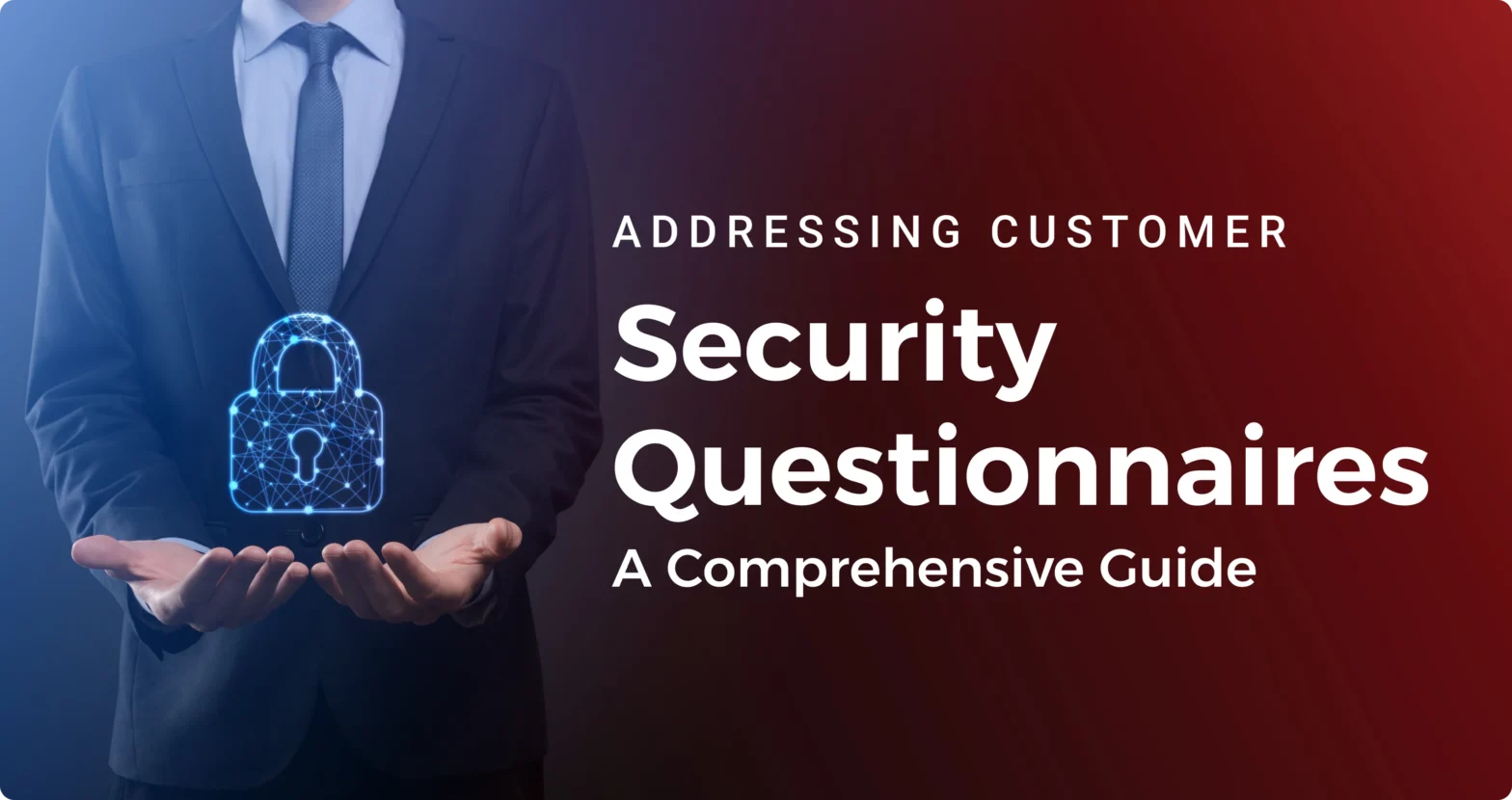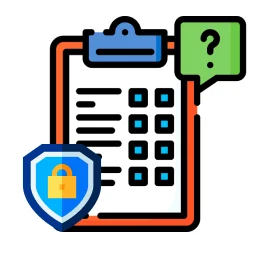Addressing Customer Security Questionnaires: A Comprehensive Guide

In modern business relationships one of the most important requirements is the compliance of security standards.
Consumers won't put their financial and personal information in the hands of businesses that don't protect their data. Maintaining the security of consumer data will provide you a competitive advantage and the loyalty of your customers. Business security fosters customer trust.
Companies that onboard clients with strict security needs often request information into the system that they are onboarding to. These include handling various compliance standards, conducting security audits and assessments, reducing threats to data privacy and security, resolving technological issues, satisfying client expectations, and adjusting to legislative changes. Inorder for the vendor to provide this information the customers send a Security Questionnaire with all that needs clarified.
Security Questionnaires
Whenever a new customer that follows strict security standards onboards to a new 3rd party system they will conduct thorough Security reviews. This includes the a security questionnaire that the customer sends to be filled to make sure that the new system is compliant with their requirements.

Given below are some common security questions that a
- Security certifications: Does your organization hold any security certifications (e.g., ISO 27001, SOC 2, HIPAA)?
- Incident response plan: Do you have a documented incident response plan in place?
- Vulnerability management: How often do you conduct vulnerability assessments and penetration testing?
- Third-party risk management: How do you assess and manage risks associated with your third-party vendors?
- Employee training: What security awareness training do you provide to your employees?
- Apart from this you may expect questions from the areas of Data security, Access Controls, Physical Security and Compliance.
How to Best Handle a Security Questionnaire
- After getting the questionnaire from the customer refer all questionnaires one-by-one and get an understanding of what is required.
- Gather your organization’s security team Developers, Analysts and Managers and discuss all questions and work on answering together.
- Be Honest and Transparent: Provide accurate and truthful information. If there are areas where your security posture is still maturing, explain the steps being taken to improve.
- Get help from an outside party - If there is any Security specialist that can be approached who has experience more on the subject, go for it and get clarifications and put the questions that are outside the scope of knowledge of your team to their side.
- Showcase Security Practices: Emphasize your organization’s commitment to security by detailing robust practices, such as encryption, multi-factor authentication, and regular audits.
- Include Success Stories: Where possible, mention any relevant case studies or success stories that demonstrate your effective security measures.
Addressing Common Rejection Reasons

- Incomplete or Inaccurate Information
- Missing Data: Ensure you've provided all requested information. Omissions can raise questions about your organization's security practices.
- Incorrect Details: Verify the accuracy of your responses to avoid inconsistencies. Any discrepancies can undermine your credibility.
- Lack of Evidence or Documentation
- Supporting Materials: Be prepared to provide evidence, such as policies, procedures, or certifications, to back up your claims. This demonstrates your commitment to security.
- Clarity and Organization: Present your documentation in a clear and organized manner. Use headings, bullet points, and concise language to enhance readability.
- Insufficient Controls or Processes
- Risk Assessment: Evaluate your organization's security controls to identify any gaps. Address these weaknesses to demonstrate your commitment to risk mitigation.
- Continuous Improvement: Highlight your organization's ongoing efforts to enhance security measures and address emerging threats.
To conclude successfully navigating customer security questionnaires is crucial for building trust and establishing long-lasting business relationships. By understanding common rejection reasons, providing comprehensive and accurate information, and demonstrating your organization's commitment to security, you can effectively address customer concerns and meet their requirements.